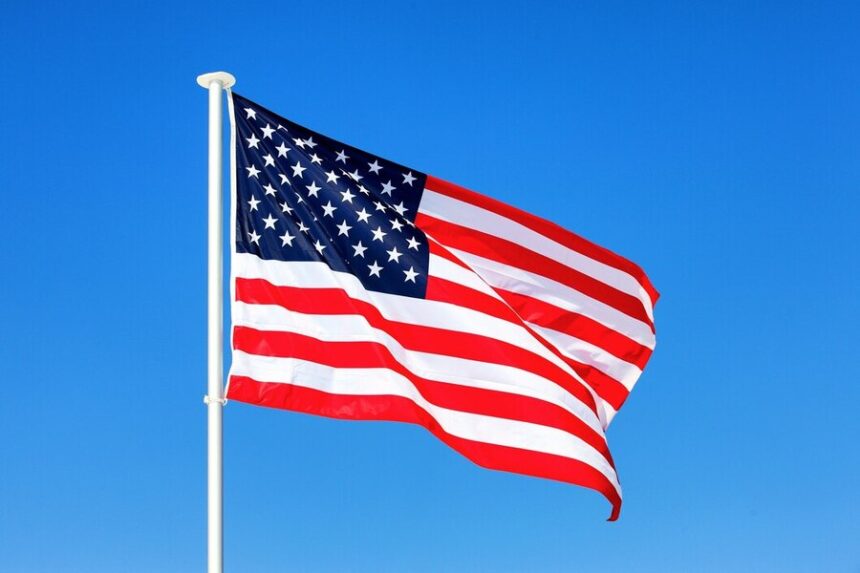The American Revolutionary War was a defining moment in history, shaping the foundation of the United States and influencing democratic movements worldwide. But what if America lost the Revolutionary War? How different would the world be today if the British had successfully suppressed the rebellion? This alternate-history scenario presents a fascinating look at how government structures, economic development, and global politics might have evolved under continued British rule.
Losing the Revolutionary War would have meant no independent United States, no Constitution, and a drastically different global superpower landscape. British policies, governance, and control would have continued shaping the colonies, impacting everything from economic trade to civil rights. In this article, we explore the possible consequences of an American defeat and how history could have taken a completely different course.
What If America Lost the Revolutionary War?
If America lost the Revolutionary War, the colonies would have remained under British rule, possibly delaying independence for decades. British policies on taxation, governance, and trade would have continued, and there would have been no U.S. Constitution or Bill of Rights. Instead of a democratic republic, the colonies might have been governed as a dominion, similar to Canada. The impact on global history, world wars, and international relations would have been profound, altering the balance of power.
The Immediate Aftermath of a British Victory
Had Britain emerged victorious in the Revolutionary War, the effects would have been swift and dramatic for the American colonies. The war had already placed a substantial financial strain on Britain, and maintaining control over the rebellious territories would have required significant economic restructuring. Instead of achieving independence, the colonies might have faced even stricter British governance, with increased military presence and more rigid laws designed to prevent future uprisings. The British government, eager to avoid another rebellion, could have imposed harsher policies to suppress revolutionary sentiments.
One of the immediate consequences would have been the punishment or exile of key colonial leaders who had supported independence. Figures like Thomas Jefferson, John Adams, and Benjamin Franklin might have faced imprisonment or execution for treason. In their place, British loyalists would likely have taken control of colonial administrations, ensuring that governance remained aligned with British interests. This shift in leadership would have reinforced loyalty to the Crown while stifling the revolutionary ideals that had begun to take hold.
Additionally, westward expansion might have been severely restricted. Prior to the war, Britain had already attempted to limit colonial expansion beyond the Appalachian Mountains through the Proclamation of 1763, aiming to prevent conflicts with Native American tribes and maintain control over colonial settlements. Had the British maintained power, these restrictions might have been reinforced, delaying or even preventing the westward expansion that later defined American growth. The concept of Manifest Destiny, which played a crucial role in American territorial expansion, might never have materialized, leaving much of the continent under continued British or other European influence.
How Would American Society Have Evolved Under British Rule?
Political System Under British Governance
Without independence, America might have remained a British colony or eventually transitioned into a dominion similar to Canada.
Economic Development and Trade
British control would have meant continued reliance on mercantilist policies, limiting economic independence and manufacturing growth in the colonies.
Slavery and Civil Rights
A prolonged British rule might have led to an earlier abolition of slavery, as Britain banned the practice in 1833, possibly preventing the Civil War.
Cultural and Social Development
British influence on American culture, language, and institutions would have remained dominant, possibly delaying the rise of an independent American identity.
Role in Global Conflicts
Without an independent United States, global conflicts like World Wars I and II might have had different outcomes, with Britain playing an even larger role in global affairs.
Consequences of Losing the Revolutionary War
- No U.S. Constitution or Bill of Rights: Without independence, the United States would never have developed its own Constitution or Bill of Rights, which have served as the foundation for democracy and civil liberties. Instead, the colonies would have remained under British rule, governed by British laws and policies. The absence of these foundational documents could have resulted in a weaker emphasis on personal freedoms, individual rights, and representative government in North America.
- Continued British Taxation: One of the primary grievances leading to the Revolution was taxation without representation. If Britain had won, colonists would have continued paying high taxes to the British government without having a say in how those funds were used. The Stamp Act, Tea Act, and other unpopular taxes could have remained in place or even expanded, leading to greater economic strain on the colonies.
- Delayed or Restricted Westward Expansion: Before the Revolution, Britain had already attempted to limit colonial expansion with the Proclamation of 1763, which restricted settlers from moving west of the Appalachian Mountains. A British victory might have further delayed westward expansion, preventing settlers from accessing new lands, limiting economic growth, and altering the entire development of North America.
- A Stronger British Empire: Had Britain retained control of the American colonies, its global dominance might have been significantly reinforced. The resources, trade, and manpower from the colonies could have made the British Empire even more powerful, possibly delaying its eventual decline in the 19th and 20th centuries.
- A Different Global Superpower Landscape: The United States became a dominant world power, shaping global politics, economics, and military conflicts. Without an independent America, the global balance of power might have been very different, with Britain, France, or even other European nations playing a more significant role in shaping modern history.
Would an Independent America Have Emerged Later?
If Britain had successfully retained control over the American colonies, independence might not have been entirely prevented, but it could have been significantly delayed. The colonies had already developed a strong sense of self-governance, and dissatisfaction with British rule would likely have continued to grow. Instead of the violent revolution of 1776, a gradual movement toward independence might have taken shape in the 19th century, similar to Canada’s peaceful transition from British rule. Over time, mounting pressure for political and economic autonomy could have led Britain to grant the colonies self-governing status, eventually resulting in a more structured and diplomatic separation.
Had this alternate timeline played out, the political structure of America might have been drastically different. Without the Revolutionary War, there would have been no immediate need for the drafting of the U.S. Constitution, which established the federal system and outlined the principles of democracy and individual freedoms. Instead, a British-affiliated government might have emerged with a political framework more aligned with that of modern Commonwealth nations. The American leadership structure could have evolved to include parliamentary elements, and a constitutional monarchy under the British Crown might have persisted for much longer.
Additionally, British influence on American law, culture, and governance would have remained much stronger well into the 19th and possibly 20th centuries. The values that define American democracy today—such as checks and balances, states’ rights, and strong executive power—might have taken a different form under prolonged British rule. Instead of the rapid expansion of democratic ideals that followed the Revolution, a slower, more controlled shift toward independence might have defined America’s political evolution.
The Global Impact of an American Defeat
- Effects on the British Empire: If Britain had won the Revolutionary War, its global dominance would have been reinforced, allowing it to focus on expanding and consolidating control over other colonies. With the American colonies firmly under British rule, Britain might have had greater resources to strengthen its presence in India, Australia, and Africa, delaying the decline of the British Empire. The additional economic benefits from maintaining control over North America could have further bolstered Britain’s influence in international trade and global affairs.
- Impact on France: The American Revolution played a crucial role in inspiring the French Revolution by demonstrating that an oppressed people could successfully overthrow a monarchy. Without the success of the American colonies, the French Revolution may have been delayed, altered, or even prevented. Without this major democratic movement, the eventual rise of Napoleon Bonaparte and France’s role in reshaping European politics could have unfolded quite differently, potentially affecting conflicts such as the Napoleonic Wars.
- Delayed Democratic Movements: The establishment of the United States as a democratic republic set an example for revolutionary movements worldwide. If America had remained under British rule, independence movements in Latin America and Europe might have been delayed or even suppressed. Nations like Mexico, Brazil, and Argentina, which fought for their independence in the 19th century, could have faced stronger opposition from European powers without the inspiration of an independent United States.
- Alternative World War Alliances: Without an independent United States, World Wars I and II might have had drastically different outcomes. The U.S. played a decisive role in both wars, and without its intervention, the balance of power might have shifted in favor of Britain, Germany, or other European nations. The absence of U.S. leadership could have led to prolonged conflicts, different alliances, or even an alternate world order in the 20th century.
Final Remarks
The question of what if America lost the Revolutionary War presents an intriguing exploration of an alternate reality. Had Britain successfully suppressed the revolution, the United States as we know it might never have existed. Instead, the colonies could have remained under British rule, delaying democracy, economic independence, and global influence. The world’s balance of power might have tilted in favor of Britain, reshaping major historical events from the French Revolution to the World Wars.
While we will never know the exact course history would have taken, imagining a world without an independent United States allows us to appreciate the significance of the Revolutionary War’s victory and its lasting impact on democracy and global leadership.
FAQ’s
Q. What if America had lost the Revolutionary War?
A. If America had lost, the colonies would have remained under British control, potentially delaying independence for decades and altering global history.
Q. Would the United States have eventually gained independence?
A. Possibly, but independence might have come later and through more peaceful means, similar to Canada’s gradual transition.
Q. How would British rule have affected American culture?
A. British influence would have remained dominant in American law, language, and governance, potentially delaying the emergence of a uniquely American identity.
Q. What impact would losing the war have had on global conflicts?
A. Without an independent U.S., global alliances and conflicts like World Wars I and II might have had different outcomes, altering the global balance of power.
Q. Would slavery have ended sooner under British rule?
A. Since Britain abolished slavery in 1833, an American loss in the Revolutionary War might have led to an earlier end to slavery in the colonies, preventing the Civil War.




